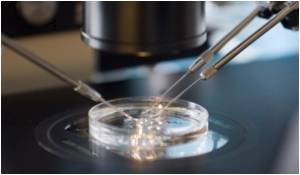Here's a piece of information for people seeking fertility treatments: Babies conceived through IVF (In vitro fertilisation) are at sharply increased risk of serious congenital malformations.

Researchers examining the health of 15,162 babies born after assisted conceptions found that 4.24 percent had serious malformations, roughly double the rate for all children.
The reasons behind the defects are not known, but it is thought the fertilisation process may damage embryos.
"This is a serious issue and the new research is very significant. People seeking fertility treatment should not be alarmed because the overall extra risk is still quite small, but we need to make sure they are made fully aware," The Times quoted Lisa Jardine, chairwoman of Britain's Human Fertilisation and Embryology Authority, as saying.
Dr Geraldine Viot, clinical geneticist at the Maternite Port-Royal hospital, Paris, who oversaw the research, said: "A major congenital malformation was found in 4.24 percent of children (v 2-3 percent expected). This higher rate was partly due to an excess of heart diseases and malformations in the urogenital system."
Viot also found a greater rate of minor malformations, with 365 children suffering from angiomas (a benign skin tumour), five times higher than the overall rate.
Advertisement
The findings are set out in a paper submitted to the annual conference of the European Society of Human Genetics, which is being held in Sweden.
Advertisement











